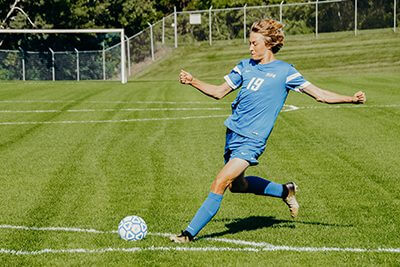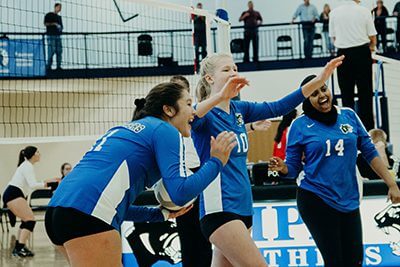October 10, 2019
 How School Sports Lift The Mind, Build Skills And Improve Mental Health
How School Sports Lift The Mind, Build Skills And Improve Mental Health
Health trends in the U.S. have turned particularly grim in recent years. According to the America’s Health Rankings 2018 Annual Report, obesity continues to rise and is a direct link to heart disease and cancer, which are contributing to the growth in premature death rates. Suicide has increased 16 percent since 2012, and more Americans are reporting poor mental health for 14 or more days in a month. The connection between physical and mental health is more evident than ever—and, supports a compelling case for encouraging students to incorporate athletics with academics throughout their school career.
Sports as a Catalyst For Mental, Physical Development
Research published in the “International Journal of Environmental Research and Public Health” outlines how school sports improve overall health and well being, highlighting that “sport provides an equilibrium between group demands and individual demands, between aggressive behaviors and self-control. It fosters a sense of belonging to a group, and teaches coping with both victory and defeat.”
The study shows that “regular physical activity also leads to better circulation and oxygen supply to the brain, an increase in bone and muscle density, and greater tolerance of stress,” and that “school-age children who devote at least an hour each day to intensive physical activity show much better cognitive functioning.” Ultimately, the researchers conclude, “efficient cognitive functioning in pre-adolescents requires not only an adequate intelligence quotient, but also high levels of executive function development such as motivation, the ability to set goals, and self-control, which is fostered by engaging in sport.”
In her article for Edutopia on the social and academic benefits of team sports, Paige Maslen focuses in on those important strengths and how they are promoted through school athletic programs. Some of the benefits are:
- Communication skills, including the ability to listen closely, interpret non-verbal messages, and give and receive feedback.
- Decisive action, honing decision-making skills and improving the ability to operate in real time, with active stress, and under immediate pressure.
- Teamwork, collaborating to reach a common goal with a sense of individual and group accountability, and respect for others.
- Time management, balancing sport commitments with coursework, friends, family time, and other activities.
- Self-esteem and a sense of community, which also support the “Five Cs” of competence, confidence, connections, character, and caring.
Research from Washington University in St. Louis illustrates that team sports can even shape the physical capacity of the brain. According to their March report, adult depression is often associated with a reduction in the size of the hippocampus, a brain region that plays an important role in memory and response to stress. This new data links participation in team sports to larger hippocampal volumes in children and less depression in boys ages 9 to 11.
“Our findings are important because they help illuminate the relationships between involvement in sports, volume of a particular brain region, and depressive symptoms in kids as young as nine,” said Lisa Gorham, lead author of the study. The findings were particularly strong for children participating in sports that involve structure, such as a school team, and raise the possibility that there is added benefit of the team or structured component of sports, such as the social interaction that these activities provide.
 Mind And Body At MPA
Mind And Body At MPA
A comprehensive approach to student success and all-around health flows throughout the Mounds Park Academy mission, with athletics positioned as a strong complement to the academic experience. Offering one of the broadest prep school athletic programs in the area, including 43 teams for grades five through 12, and 35 state championships in team and individual sports, the athletics program at MPA encourages students to participate, engage, and dream big.
“MPA was founded on the conviction that a balance between academics, the arts, and athletics is an important part of a whole-child education and leads to success in school and in life. The balance is maintained in a number of ways, including a commitment to physical education in the curriculum and offering a robust athletic program,” explains Dr. Bill Hudson, head of school.
“We encourage students to play a variety of sports. Each sport challenges athletes in different ways and skills developed in one sport may help them in other sports. The exposure to different coaches, teaching methods, and teammates may increase their mental toughness, appreciation, and humility, which is helpful in the overall development of the athlete. Having choices helps students learn what they enjoy, and they may discover a love for a sport they had not previously considered.”
Hudson explains that “athletics complement the academic experience, provide balance to our students’ lives, and foster school spirit … student athletes develop commitment, character, perseverance, initiative, leadership, and teamwork.”
Winter sports registration is now open at moundsparkacademy.org/athletics.
Learn More About It: Athletics And Well Being
- The Exercise Effect, with perspectives from the American Psychological Association on how physical activity can help combat depression.
- The positive impact of high school sports on long-term health, from the “Fit in 50 Years” longitudinal study of World War II veterans.
- Perspectives from the American Orthopaedic Society for Sports Medicine on the benefits of playing sports.